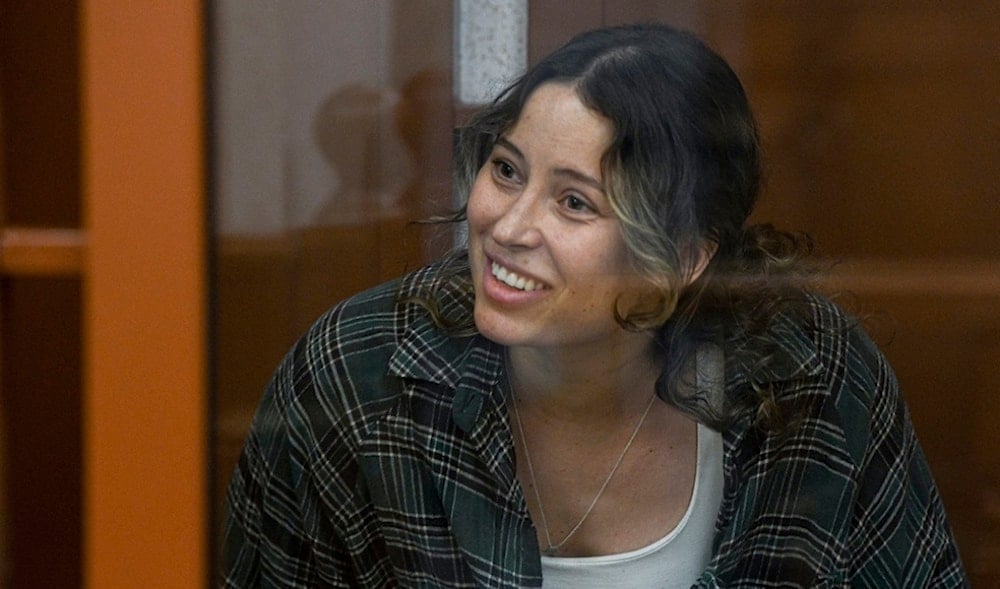US, Russian intelligence arrange prisoner swap in Abu Dhabi: WSJ
The United States and Russia have agreed to swap two prisoners, Ksenia Karelina and Arthur Petrov, in a deal arranged by both their intelligence establishments.
-

Ksenia Khavana sits in a defendant's cell in a court in Yekaterinburg, Russia, June 20, 2024. (AP)
The United States and Russia carried out a prisoner exchange early Thursday in Abu Dhabi, signaling ongoing efforts to maintain dialogue as both sides pursue a potential resolution to the conflict in Ukraine.
Russia freed Ksenia Karelina, a US-Russian dual citizen sentenced last year to 12 years in a penal colony for treason after she donated money to a US-based Ukrainian charity. In return, the US released Arthur Petrov, a German-Russian dual national arrested in Cyprus in 2023 at Washington’s request for allegedly exporting sensitive microelectronics to Russia.
Talks for the swap were led by CIA Director John Ratcliffe and a senior Russian intelligence official, reflecting growing communication between US and Russian intelligence agencies.
Since taking office, Ratcliffe has held several phone calls with top Russian intelligence officials, including Federal Security Service (FSB) chief Alexander Bortnikov and Foreign Intelligence Service (SVR) head Sergei Naryshkin, according to official statements and sources familiar with the discussions.
Bortnikov also helped broker last year’s release of Wall Street Journal reporter Evan Gershkovich.
“The exchange shows the importance of keeping lines of communication open with Russia, despite the deep challenges in our bilateral relationship,” a CIA spokesperson said. “While we are disappointed that other Americans remain wrongfully detained in Russia, we see this exchange as a positive step and will continue to work for their release.”
This marks the second prisoner swap between Washington and Moscow since President Trump returned to office in January. In February, Russia released American teacher Marc Fogel during a visit by US envoy Steve Witkoff. Moscow indicated at the time that the release would be followed by the return of a Russian national held in the US.
Restoring ties
Despite strained high-level diplomacy following the Russia-Ukraine conflict, Moscow and Washington have maintained intelligence contacts to avoid escalation.
Under the Biden administration, then-CIA Director Bill Burns often served as a backchannel to the Kremlin. More recently, Ratcliffe and Naryshkin agreed to regular communication to reduce tensions and explore shared interests, according to the SVR.
However, US intelligence officials caution against viewing these calls as signs of deeper intelligence cooperation.
Recently, Kirill Dmitriev, CEO of the Russian Direct Investment Fund (RDIF) and special envoy, met with Trump administration officials to explore measures to improve US-Russia relations.
Dmitriev told reporters that he met with key members of Trump's administration on behalf of the Russian president, emphasizing that the main focus of the discussions has been "the restoration of Russian-American relations and the re-establishment of dialogue, which was entirely halted during the Biden administration."
Dmitriev stated that several individuals and nations are attempting to stymie this discourse, delay the restoration of Russian-American ties, and prevent the settlement of major issues that must be addressed.
Read more: Forbes-listed Russian billionaire arrested on fraud charges

 3 Min Read
3 Min Read











